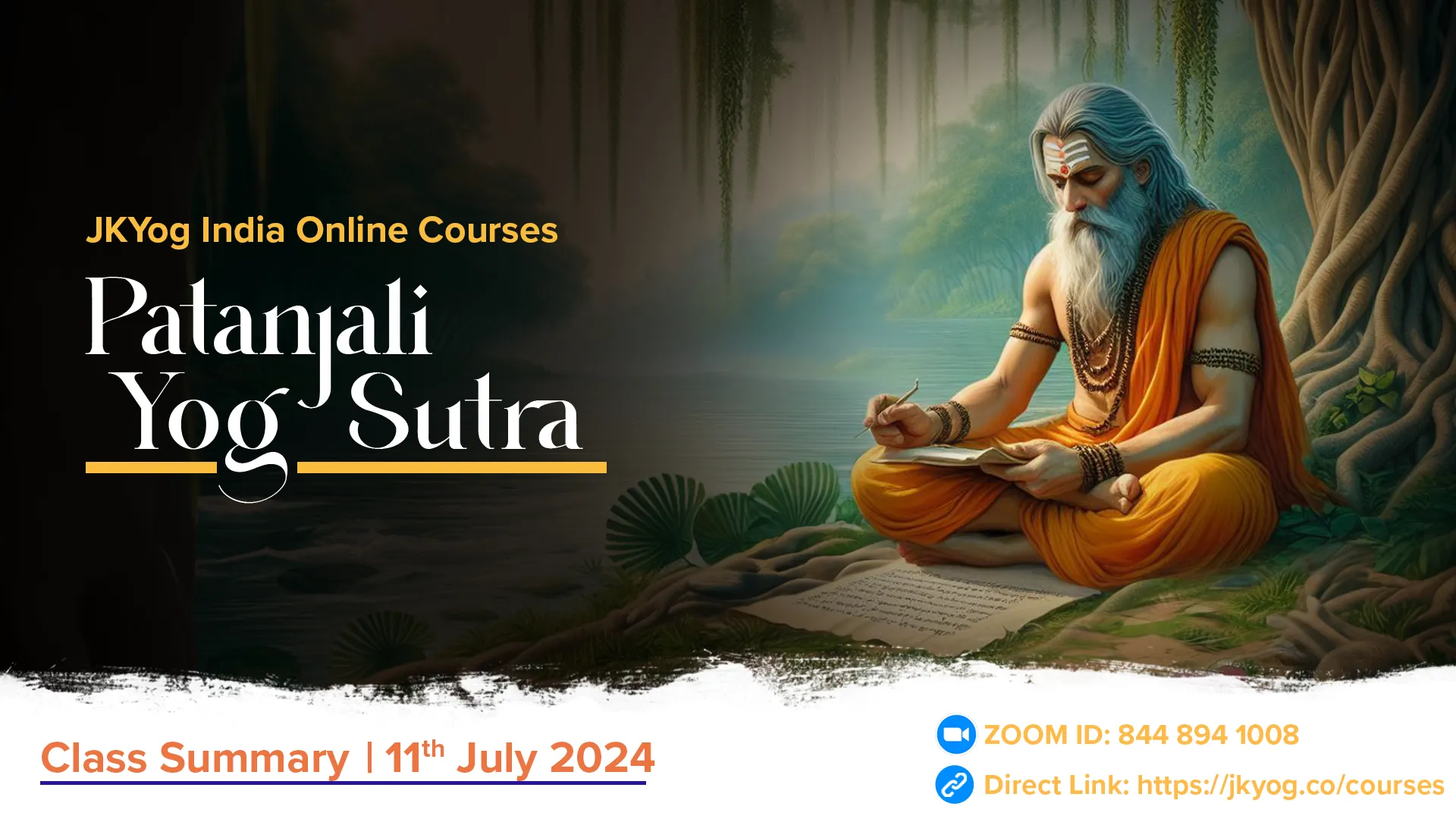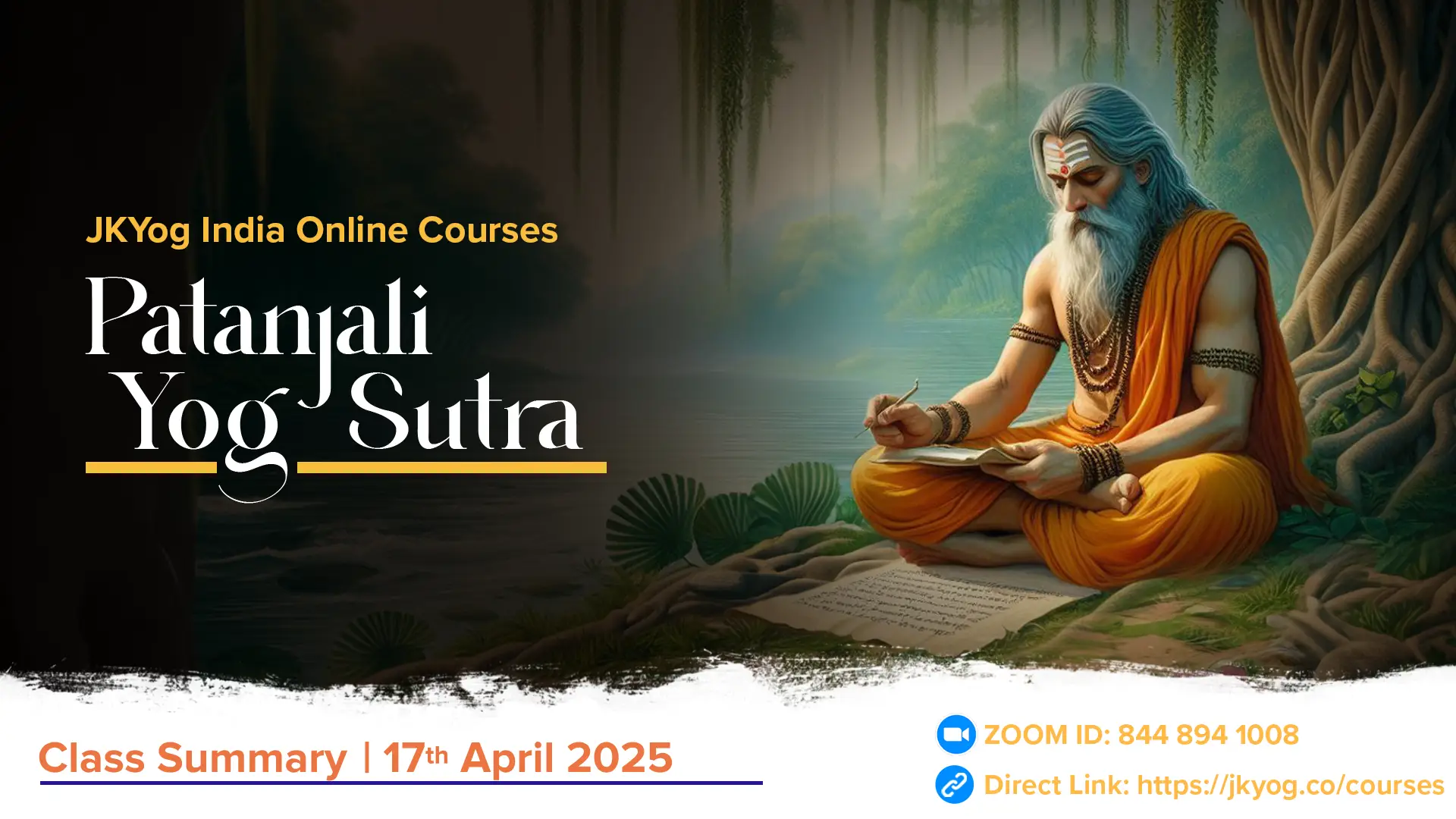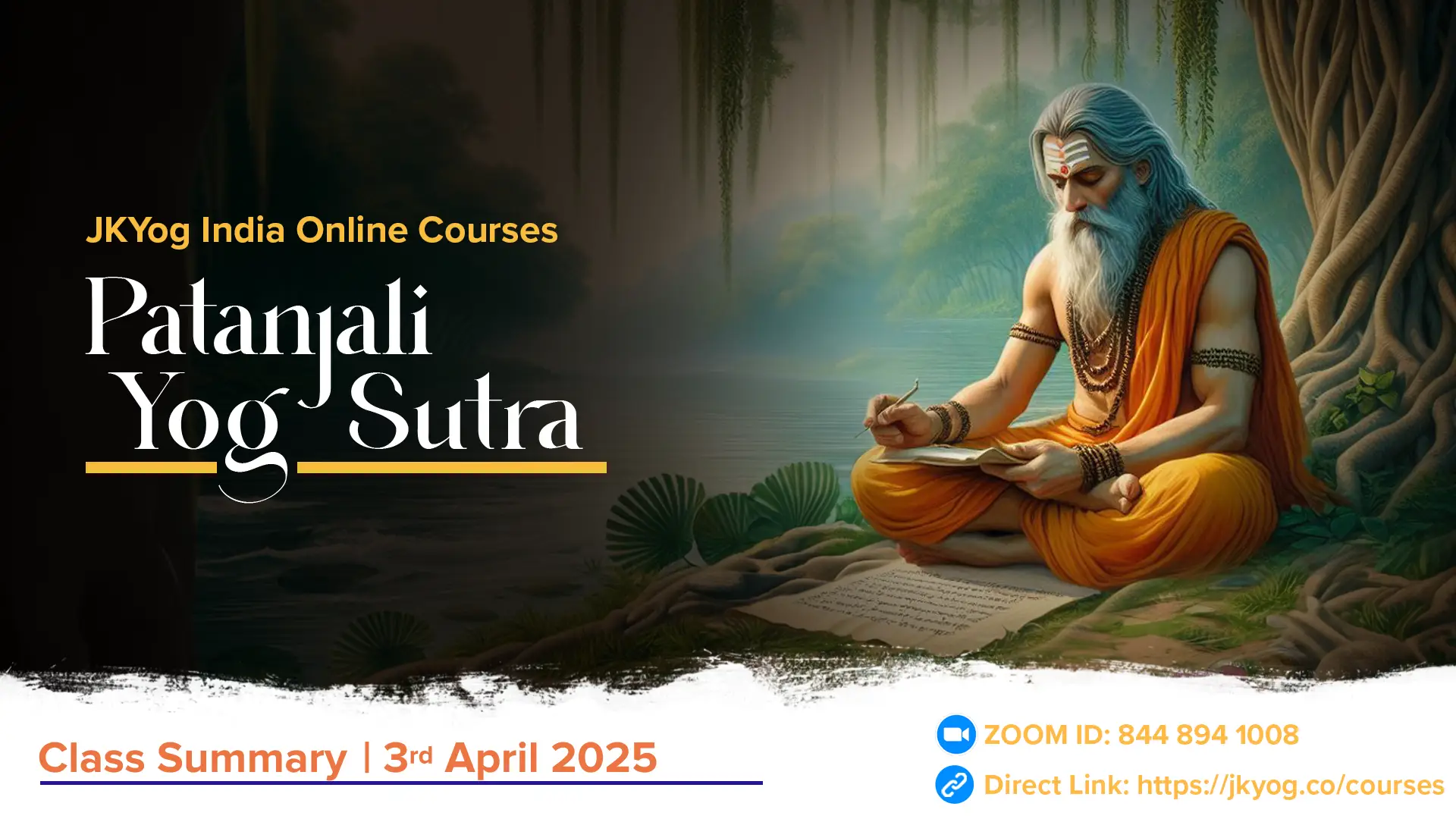संतोषादनुत्तम सुखलाभः ।।
saṁtoṣād anuttama sukha lābhaḥ ।। 2.42 ।।
Translation: By contentment one can attain excellent joy.
In the material world, there is no end to man's avariciousness and greed. Greed gives rise to other evils like jealousy and anger, leading to frustration, anxiety, tension, and stress. The best policy to control these evils is Contentment—to be happy in our current position and not seek happiness outside. The Bhagavad Gītā states that there is no limit to greed. There are three gates leading to the hell of self-destruction for the soul: lust, anger, and greed. Therefore, all should abandon these three.
The root cause of greed is the rajo guna within us. Rajo guna inflames the senses, putting the mind out of control and sending it into a spin of ambitious desires. The living being is trapped by it and over-endeavours for wealth and meaningless pleasures from the soul's perspective.
However, the Mahabharata states that Contentment is the highest heaven, the highest bliss. There is nothing higher than Contentment; it stands as the highest. Numerous verses in the Bhagavad Gītā also speak about Contentment, underscoring its significance in achieving true happiness and peace. Contentment is the key to controlling the destructive forces of greed, jealousy, and anger, guiding us toward a life of inner peace and spiritual fulfilment.
सन्तुष्ट: सततं योगी यतात्मा दृढनिश्चय: ।
मय्यर्पितमनोबुद्धिर्यो मद्भक्त: स मे प्रिय: ।।
santuṣṭaḥ satataṁ yogī yatātmā dṛḍhaniścayaḥ
mayyarpitamanobuddhir yo madbhaktaḥ sa me priyaḥ
(Gita 12.14)
Translation: "Those devotees are very dear to Me who are free from malice toward all living beings, who are friendly and compassionate. They are free from attachment to possessions and egotism, equipoised in happiness, distress, and ever-forgiving. They are ever-content, steadily united with Me in devotion, self-controlled, of firm resolve, and dedicated to Me in mind and intellect."
This verse from the Bhagavad Gita underscores the importance of self-control in the journey towards Contentment and spiritual fulfilment. The Yoga Vasishtha also praises Contentment, stating, "Contentment is the supreme gain. Satsanga, or good association, is the best companion to the destination. The spirit of enquiry itself is the greatest wisdom. And self-control is supreme happiness."
The four sentinels posted at the gate of moksha (liberated state) are:
- Shama (quiescence of mind or sweet patience).
- Vichara (the enquiry after Atman).
- Santosh (Contentment of mind).
- Sadhu-sanga (association with the wise).
They must be befriended by one wishing to attain moksha. Chanakya Neeti states, "There is no penance better than peace, no happiness better than satisfaction; there is no disease worse than greed, and no better dharma than kindness." It advises satisfaction in three aspects—wife, food, and money—and insatiability in three others—learning, meditating, and giving.
Therefore, let us be satisfied with our material possessions and increase our desire for seva and sadhana. By doing so, we can cultivate Contentment, control greed, and progress towards spiritual enlightenment.
Summary: JKYog India Online Class- Patanjali Yoga Sutra [English]- 11.07.2024








